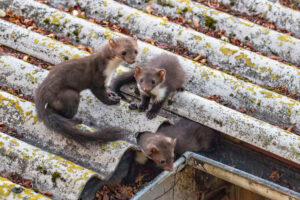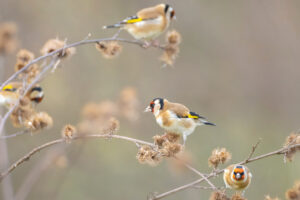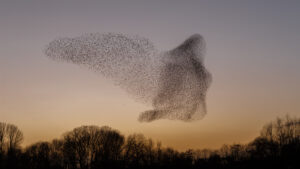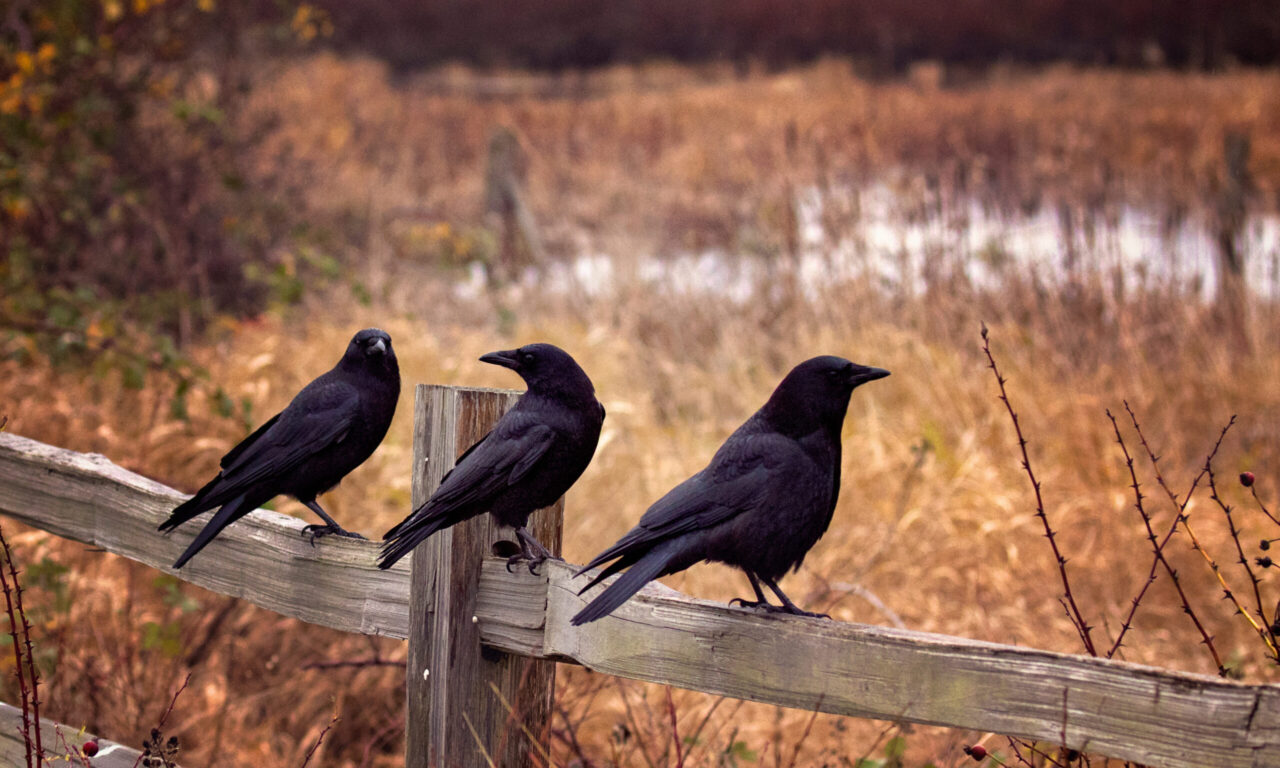What is the proper term for a group of ants? An Army. How about badgers? A Seat. Marmots? A Madness. More importantly, who exactly gets to decide on these names?
Collective nouns are a curious construction in the English language. Most of these words come from medieval times when the “proper” use of these terms was one way to separate the gentry from the peasants. In fact, books of etiquette included collective nouns of animals so that nobles could talk about a busyness of ferrets or an exaltation of larks without fear of misspeaking. One of the most influential of these tombs was “The Book of St. Albans” written by Dame Juliana Berners in the 1400s. Its focus was on terms and knowledge needed for hawking, hunting, and heraldry.
Some group names were given because of superstitions surrounding particular animals. A murder of crows and an unkindness of ravens fall into this category. Both types of birds were considered ill omens and so their group names reflect this connotation.
Not all associative group names were quite so negative. A richness of martens was used because of the status and wealth of people who could afford marten fur. It was a sought-after commodity in Tudor times (1485- 1603) and was used to show social rank.

There is no governing body for English. Speakers create, edit, add, and subtract words simply by what they use. This democratic governance of the language keeps it fluid and ever-changing. Which can be frustrating for those looking for the “right” way to do things.
That’s how the collectives can change over time. For example, a charm of goldfinches was at first a chirm of goldfinches. Chirm is the noise associated with a group of small children or insects and was a commonly used term back in the 1400s. As the use of the word chirm faded, our word for a group of noisy finches switched over to the now more commonly used charm.

Another group name that has changed both with the language itself, as well as with scientific findings is, a murmuration of starlings. At one point a group of starlings was referred to as a mutation rather than a murmuration. This is because people once thought birds shed a leg at the age of ten and then grew a new leg to replace it, hence the name, mutation. Once that notion was disproved, the group name changed accordingly.

So, the next time you see a gaggle of geese, a flick of hares, a gang of elk, or a parliament of owls have a good think and decide if you have a better term for that group. Then, start putting that new word to good use. Convince some friends to use it as well and you may even start a language revolution.


